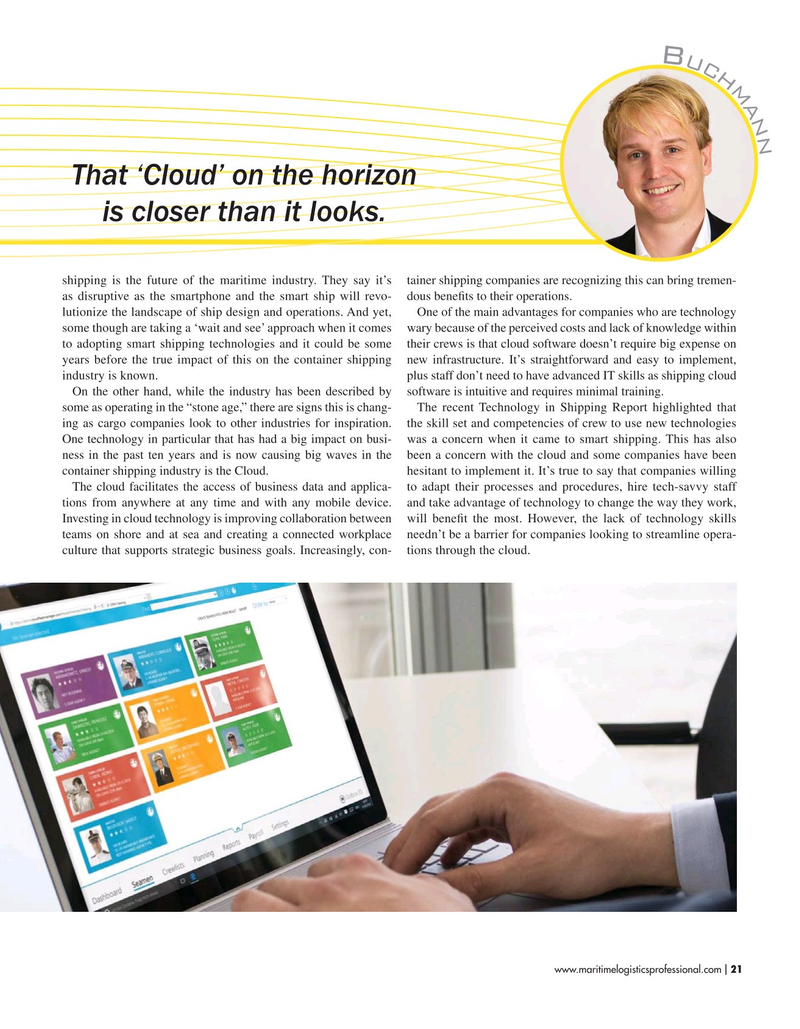
Page 21: of Maritime Logistics Professional Magazine (Mar/Apr 2019)
Container Ports
Read this page in Pdf, Flash or Html5 edition of Mar/Apr 2019 Maritime Logistics Professional Magazine
B
U
C
H
M
A
N
N
That ‘Cloud’ on the horizon is closer than it looks. shipping is the future of the maritime industry. They say it’s tainer shipping companies are recognizing this can bring tremen- as disruptive as the smartphone and the smart ship will revo- dous bene?ts to their operations. lutionize the landscape of ship design and operations. And yet, One of the main advantages for companies who are technology some though are taking a ‘wait and see’ approach when it comes wary because of the perceived costs and lack of knowledge within to adopting smart shipping technologies and it could be some their crews is that cloud software doesn’t require big expense on years before the true impact of this on the container shipping new infrastructure. It’s straightforward and easy to implement, industry is known. plus staff don’t need to have advanced IT skills as shipping cloud
On the other hand, while the industry has been described by software is intuitive and requires minimal training. some as operating in the “stone age,” there are signs this is chang- The recent Technology in Shipping Report highlighted that ing as cargo companies look to other industries for inspiration. the skill set and competencies of crew to use new technologies
One technology in particular that has had a big impact on busi- was a concern when it came to smart shipping. This has also ness in the past ten years and is now causing big waves in the been a concern with the cloud and some companies have been container shipping industry is the Cloud. hesitant to implement it. It’s true to say that companies willing
The cloud facilitates the access of business data and applica- to adapt their processes and procedures, hire tech-savvy staff tions from anywhere at any time and with any mobile device. and take advantage of technology to change the way they work,
Investing in cloud technology is improving collaboration between will bene?t the most. However, the lack of technology skills teams on shore and at sea and creating a connected workplace needn’t be a barrier for companies looking to streamline opera- culture that supports strategic business goals. Increasingly, con- tions through the cloud. www.maritimelogisticsprofessional.com 21
I

 20
20

 22
22
